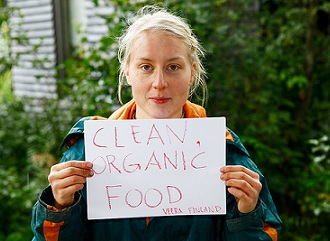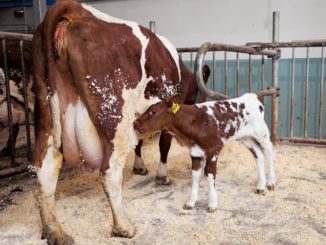 One of the main themes which emerged from the 8th European Organic Congress, which Arc2020 co-organised and which Oliver Moore attended, was producer concern over the proposed new organic regulation.
One of the main themes which emerged from the 8th European Organic Congress, which Arc2020 co-organised and which Oliver Moore attended, was producer concern over the proposed new organic regulation.
Organic farmers, lawyers who represent them, certification bodies, trade unions and IFOAM as an organisation all voiced concerns about many aspects of the proposed regulation.
Speaking directly with IFOAM EU president Christopher Stopes, he told me:
“While we haven’t adopted a full agreed position on the regulation as of yet, we do have some significant concerns. There are two in particular. The first is proposal that there should be no allowance for mixed organic and conventional holdings. We think the separation protocols are adequate at the moment. The other one would be on pesticide thresholds, where decertification and liability would be placed on the organic farmer. This would be completely inappropriate as contamination can happen elsewhere in the supply chain. It holds the organic farmer, who doesn’t use pesticides, liable for contamination from the conventional farmer or elsewhere”
This latter point on accidental or inadvertent contamination was the hot topic of the week. The problem is that the organic food system is, inevitably, longer, more complicated and more interconnected than ever before. That said, it is still a relatively small part of the overall food system.
Organic farms are often surrounded by conventional ones, and organic food is often packed or processed in houses that also handle conventional produce. Conventional packing houses routinely use fungicides to clean houses for example. Organic foods can be packed in these houses too. Though there are controls, they can only do so much at the micro level.
In these contexts, the potential for pesticide residues to inadvertently end up somewhere in the organic food chain is high.
So who is liable? How does the organic farmer get compensated when organic food is taken out of the certification system, through no fault of the organic farmer?
Already this has emerged as a contentious point, as speakers from the floor at the Congress pointed out.
An example was given by a Danish organic farming representative, of two organic farmers who received E30,000 in compensation from a conventional farming Union. These two farmers had food withdrawn from the organic system. A particular pesticide company controlled 90% of the production of this pesticide in Denmark, the speaker pointed out, but refused to accept liability. The organic farmers themselves could prove, via audited accounts, inspections and other means, that they did not use these pesticides. While it was likely that pesticide drift from a nearby farmer caused it, or it came from some other inadvertent source, no individual farmer could be blamed.
Things got heated when, under pressure from the organic farming lobby, the pesticide company threatened to pull that product out of the country altogether, rather than accept any liability. In this context, to prevent the withdrawal, the conventional farming Union stepped in to compensate the organic farmers.
The new regulation will set the pesticide threshold for testing in organic so strictly that this sort of case may come up more and more often.
Another contributor from the floor, German attorney-at-law Hanspeter Schmidt was very vocal on issues with the new Regulation. His exchanges with Joao Onofre of the EU Commission’s Organic Farming Unit were especially heated.
Schmidt favours withdrawing the Regulation altogether, and starting afresh, as happened with the Seed Regulation recently.
As well as the above point on residues and thresholds, he is concerned that third country equivalency will allow inputs banned under EU organic rules to be sold as organic in the EU.
In fact, this is allowable with US EU organic equivalency, which has been signed into law already. At present, this is more a theoretical problem than a practical one, notwithstanding regulatory chill. This will become a more significant issue again if TTIP – Transatlantic Trade and Investment Partnership – is finalised. This would then open up the EU to US organic, and visa versa.
More and more third country agreements are being entered into by the EU, Schmidt pointed out, and some involve foods already on sale in the EU. In all cases, there are potential discrepancies which will make the playing field unlevel. These products are competing with the products of EU farmers.
One gets the feeling that eitherways, Schmidt and his cohorts will have many lucrative days in court.
More on the proposed Organic Regulations (May 2014)
More from Oliver Moore
- 4 Key Agri-Food Policy Needs
- Who is Phil Hogan?
- Ireland Improves Payments & Options for Organic Farmers
- CAP Greening: Ireland opts for path of least resistance
- European Organic Congress case profile: Terre de Liens
- EFSA slammed by Pesticide Action Network over its methods
- Antimicrobial resistance soaring
- Part 3: what did you think? Reader’s replies on livestock reduction
- Part 2: Westhoek & Sutton on Less Livestock in Europe
- Part 1: how to cut EU agri-food Greenhouse Gas Emissions by 40%
- What might TTIP mean for organic farming and food?
- EU Commission scope finds merit in “alternative production”
- Requiem for a Green Dream
- Capping dissent in Ireland?
- Agri-Food hit hard by Climate Change: IPCC





